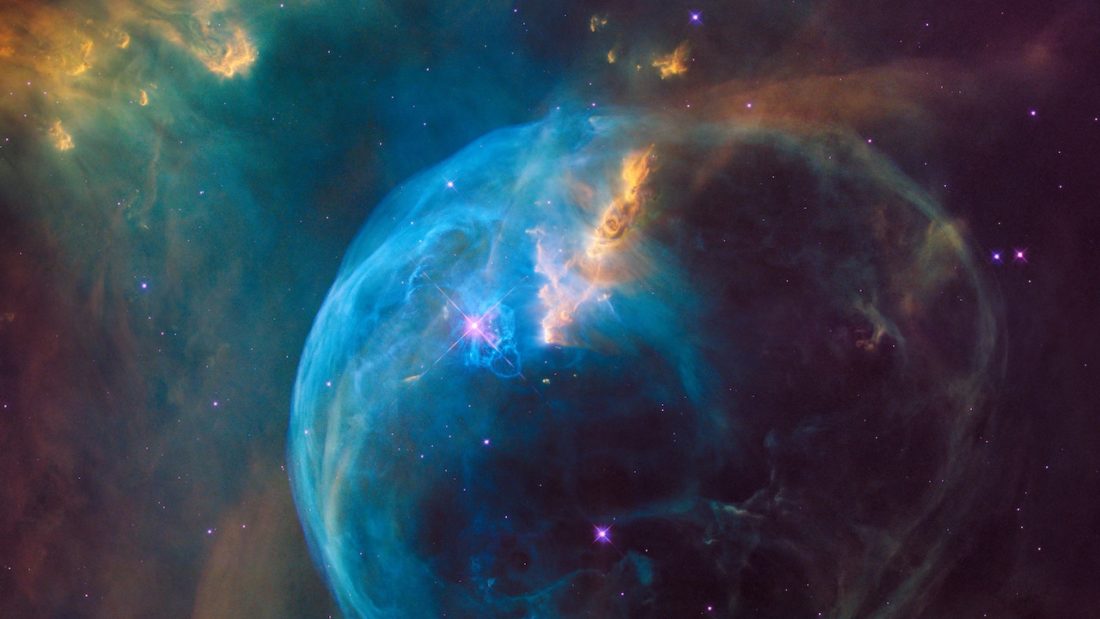It is not the case that science is driven by scepticism, observation and experiment, while Christianity requires you to believe “six impossible things before breakfast.” Science and Christianity are both built on evidence… and both require faith.
The cosmologist, Paul Davies, puts this well. He says: All science proceeds on the assumption that nature is ordered in a rational and intelligible way. You couldn’t be a scientist if you thought the universe was a meaningless jumble of odds and ends haphazardly juxtaposed. When physicists probe to a deeper level of subatomic structure, or astronomers extend the reach of their instruments, they expect to encounter additional elegant mathematical order.
He goes on to say that the intelligibility of the cosmos is reflected in the laws of physics—the fundamental rules that determine how nature runs. These laws of physics are regarded as sacrosanct, phenomena that have always existed in our universe. The obvious question prompted by this is, of course, where did these laws come from? After all, the idea that they exist without reason is anti-rational. So, this is not a question that can be shrugged aside.
Davies says:
“Clearly, then, both religion and science are founded on faith—namely, on belief in the existence of something outside the universe, like an unexplained God or an unexplained set of physical laws.” He concludes by saying:
“Until science comes up with a testable theory of the laws of the universe, its claim to be free of faith is manifestly bogus.”
That’s not a bad conclusion from a renowned scientist with no conventional faith.
Some have tried to suggest that our universe is just one of an infinite number of universes—which, because there are an infinite number of them, must eventually chance upon a set of scientific rules able to develop intelligent life? After all, if this were not so, we wouldn’t be here to observe ourselves.
The challenge to the existence of God posed by multiverses can be met in part by saying this: It isn’t just that we exist which is the miracle; it is the manner of our existence. The self-observing life form we call “humanity” is not simply a blob of brain able to know itself to be alive for a brief moment of time. It is significantly more. It is Mozart. It is Mother Teresa. It is humour, compassion, creativity, love, heroism and science. It is also a shy but persistent ache that compels 96 per cent of us to reach towards a higher being, someone who will give us meaning. The life form that is “us” really is very remarkable—too remarkable, I suggest, to lazily dismiss as simply the chance product of an infinite number of universes.
So, it is not just a case of life existing but of appreciating the manner and nature of that life.
I’ve heard someone explain the significance of this with this analogy.
Suppose some drug smugglers had tampered with your travelling case while you were touring in a foreign country and customs officials find five kilograms of heroin inside it. The judge refuses to believe you are innocent and condemns you to be shot to death by a firing squad. You are led out of prison, placed against a wall and blindfolded. Ten of the army’s top marksmen stand eight paces away. At a command from the officer, they cock their weapons. Then you hear, “Ready, aim… FIRE!”
To your amazement, you discover that you are still alive. You feel all over your body, but don’t find any bullet holes. Might I suggest that at this point you would do more than shrug with indifference and say, “Well, since I’m here to report on the situation, I must have fluked a set of circumstances that has enabled me to do so.” No. You would justifiably seek some sort of explanation.
Caution needs to be exercised when using the term “infinite” to dilute the significance of the existence of humankind. The word “infinite” is not an escape clause that allows any possibility. It is not a magician’s hat from which anything can be produced. We still need to ask, “who” or “what” began the first universe? Why has “chance” been given the opportunity to build a universe that is able to develop humankind?
You do not explain a book simply by pointing to a library of books. Neither do you explain our ordered universe by pointing to the possibility of an infinite number of universes. More needs to be said.
The scientific laws of “cause and effect” mean it is quite reasonable for us to seek the ultimate cause of the universe… the ultimate source of the codes and the scientific laws that underpin it. These things point to a mind… to a God. And the claim of the Christian gospel is that this God wants to be known… and has come to us as Jesus to rescue us back to himself, so that we fulfil our true destiny.
Please don’t miss out on it.


